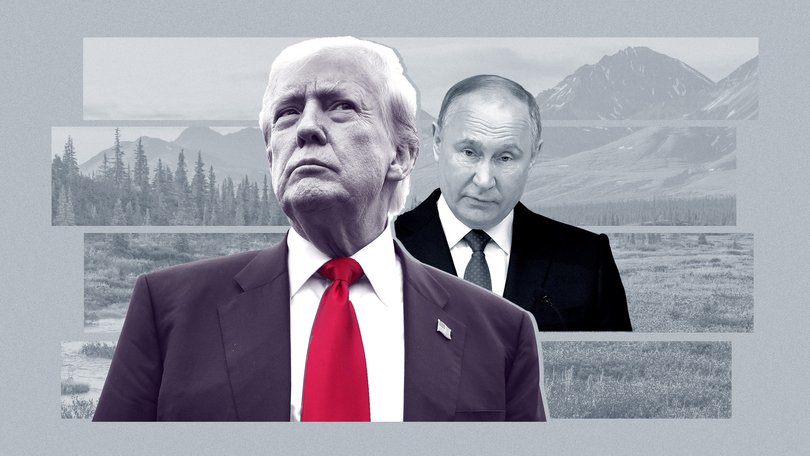THE NEW YORK TIMES: The US was one of the few Western nations Putin could visit without risking arrest
THE NEW YORK TIMES: One legal requirement stops the Russian president from getting into most Western countries, so why was the United States able to roll out the red carpet for him?

When the International Criminal Court accused President Vladimir Putin of Russia of war crimes in 2023 and issued a warrant for his arrest, the move was largely symbolic because there was little chance he would stand trial.
But it immediately jeopardised Putin’s ability to travel to the more than 120 countries that have signed on to the ICC.
They include almost every nation in Europe and dozens more in Africa, Asia and Latin America.
Sign up to The Nightly's newsletters.
Get the first look at the digital newspaper, curated daily stories and breaking headlines delivered to your inbox.
By continuing you agree to our Terms and Privacy Policy.They are all legally required to arrest Putin and send him to The Hague if he sets foot on their soil. But Putin’s visit to Alaska on Friday highlighted a notable exception.
To prevent the world’s highest criminal court from being used to prosecute Americans, the United States has long refused to join the ICC, created over 20 years ago under the 1998 Rome Statute to handle accusations of crimes against humanity, war crimes and genocide.
As a result, the United States is virtually the only country in the West that Putin can visit without worrying about arrest.
Only a handful of other major powers, including China, India, Russia and Israel, have abstained from becoming signatories to the court.
Even before the ICC warrant for Putin was issued, it had been rare for him to travel abroad.
He spent the first two years of the COVID pandemic in Russia, a period of isolation that some US intelligence officials speculated might have heightened his appetite for risk and influenced his decision to launch the full-scale invasion of Ukraine in 2022.
The ICC has accused Putin of bearing criminal responsibility for the abduction and deportation of Ukrainian children after Russia launched its invasion. But the court cannot try absent defendants, and Russia has dismissed the warrants as “meaningless”.
Though the court has no enforcement mechanism, the symbolic weight of its arrest warrant for Putin has forced members and nonmembers alike to decide whether they are willing to take the diplomatic risk of hosting a wanted man.
That risk has not been enough to stop several countries that are friendly with Moscow — or reliant on it — from welcoming Putin. Since 2023, he has made repeated visits to China, Belarus and several Central Asian countries.
In September, he was given a red-carpet welcome in Mongolia, which is a party to the ICC but depends on neighbouring Russia for most of its fuel.
Mongolia isn’t the only country to have defied its obligation to the court. South Africa did so in 2015, when it allowed Omar al-Bashir, then the Sudanese president, to fly in and out of Johannesburg while he was wanted by the ICC on accusations of genocide and war crimes in his country’s Darfur region. Bashir remains at large, a prominent example of the court’s limitations.
Last year, South Africa faced a dilemma over whether to permit Putin to attend the annual summit of BRICS nations. After months of speculation, the Kremlin announced that Putin would attend remotely.
Putin is one of only a few sitting leaders facing an outstanding arrest warrant from the ICC. Another is Prime Minister Benjamin Netanyahu of Israel, whom the court last year accused of carrying out war crimes and crimes against humanity in the Gaza Strip. Netanyahu’s office has categorically rejected what it called “absurd and false accusations”.
The United States, Israel’s chief ally, also denounced the ICC warrant for Netanyahu’s arrest, and President Donald Trump has since hosted the Israeli leader three times at the White House.
This article originally appeared in The New York Times.
© 2025 The New York Times Company
Originally published on The New York Times
